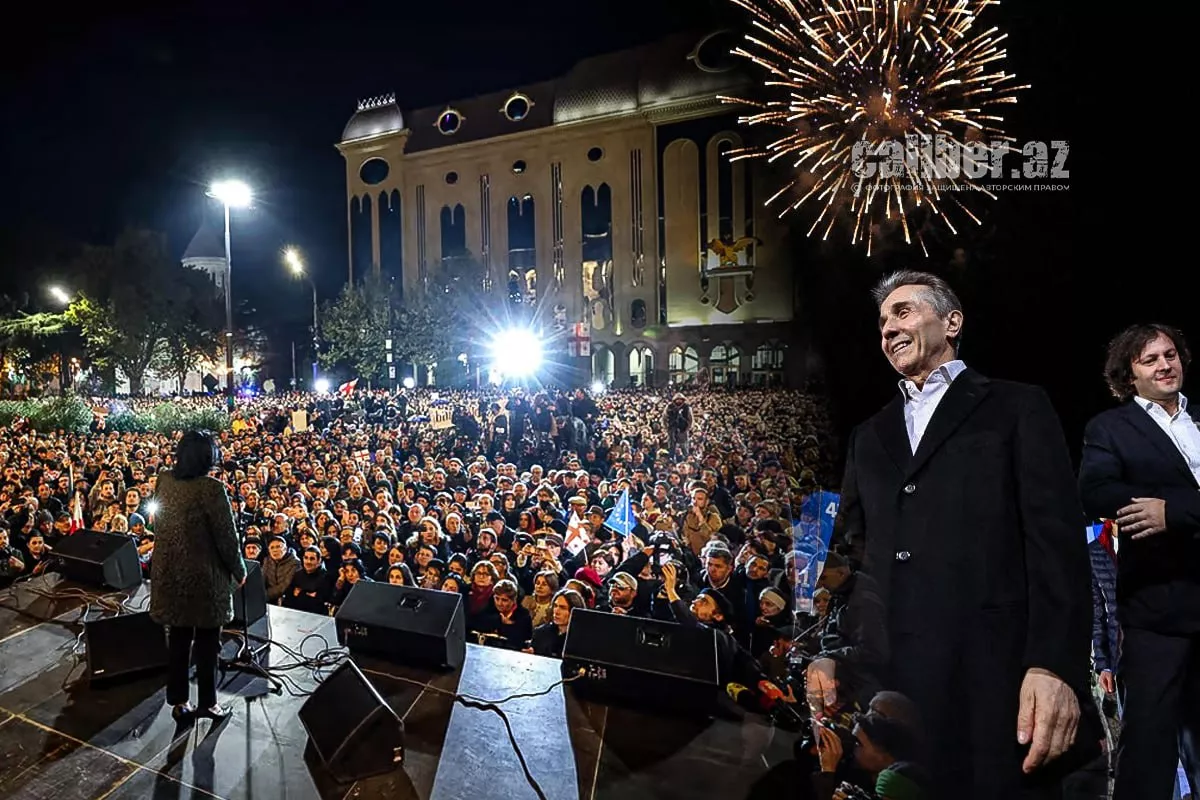Western double standards on Moldova and Georgia’s elections Selective democracy?
The phrase “extraordinary things are all around us” likely resonates with everyone. Life often seems to run its course, offering us lessons along the way, yet we’re still surprised by the events unfolding around us—and even within our own lives. In global geopolitics, however, this surprise takes on a more complex tone. Today, it seems the world is united in the familiar call for “peace on earth.” Yet, civilian casualties continue to mount, the destruction of homes has become an accepted part of daily life, and the number of refugees—fleeing with no clear destination or timeline—keeps growing, becoming yet another harsh reality of our times.
And all of this is happening in the 21st century, against a backdrop of widespread calls for democratic values and human rights. These calls are undoubtedly admirable—unless they come from biased politicians and international organizations who raise them only when it serves their own interests. Take, for instance, the selective application of these principles when it comes to elections, referendums, or laws passed by the parliaments of various countries. A simple example from this October illustrates the discrepancy: the Western political establishment’s differing reactions to the results of the referendum in Moldova on EU membership and the recent parliamentary elections in Georgia.
To recap, according to Moldova’s Central Election Commission, after 100% of precincts were counted, 50.35% (749,719 people) supported EU integration, while 49.65% (739,155 people) were against it. In other words, the "yes" and "no" votes were nearly equal, with pro-EU supporters having a slim margin of about 10,000 votes. And what was the Western response? Silence—no questions were raised about the figures' accuracy or the process’s fairness. Not that this is a problem; it’s reassuring, in fact, that everything unfolded calmly, peacefully, and within the law.
The situation surrounding the parliamentary elections in Georgia, however, tells a different story. According to reports, the ruling Georgian Dream party has secured 89 out of 150 seats, with the opposition holding the remaining 61. This outcome, as noted, means that the Georgian Dream has failed to secure a constitutional majority—a goal it had been aiming for. With a constitutional majority, party members could have freely introduced amendments to the country’s constitution.
Notably, this result has caught the attention not only of Georgian analysts but also of foreign observers, who see it as a clear indication: if the ruling party had wanted to manipulate the results, they could have easily ensured extra votes for their supporters through one means or another.

Regardless, the West took a fundamentally different approach in assessing Georgia's elections compared to its reaction to Moldova's referendum results. This disparity raises a question frequently voiced by analysts lately: where is the commitment to democracy and respect for human rights here?
The joint observation mission in Georgia comprised 510 observers from 42 countries, with teams stationed across polling locations nationwide on election day (including 380 from OSCE/ODIHR, 61 from OSCE PA, 39 from PACE, 38 from NATO PA, and 12 from the European Parliament). According to the mission’s report, as reported by Georgian sources, the parliamentary elections were “well-organized overall,” with the Central Election Commission doing an effective job of informing voters about the new election technologies introduced. Observers also noted that Georgian voters had ample choice, with 18 political parties openly competing, and that candidates were largely able to conduct their campaigns freely.
These aspects led OSCE PA representative Pascal Allizard to describe the process as “the sign of a system that is still growing and evolving, with a democratic vitality under construction.” However, the report also highlighted negative aspects, such as “high polarisation of the political and media landscape,” along with other issues.
This assessment likely speaks for itself, but as noted by experts, the West appears uninterested in taking an objective stance on the results of the Georgian elections. Almost on cue, there were calls to “investigate,” “clarify,” and “look into alleged irregularities,” as if following a set script. Apart from Hungarian Prime Minister Viktor Orbán, who promptly flew to Tbilisi and congratulated the Georgian leadership on what he called “free and democratic elections,” no one else from the European political elite expressed similar sentiments. Quite the opposite, in fact: a group of 13 EU countries, including Germany and France, outright condemned Orbán’s visit to Georgia as “premature.” The letter underscored that “Orbán does not speak on behalf of the EU.”

In this way, the West has clearly demonstrated that if its proxy-backed forces fail to secure the desired election results in a particular country, the outcome can simply be disregarded. That’s all there is to it. Hungarian Prime Minister Viktor Orbán confirmed this sentiment in a joint briefing with Georgian Prime Minister Irakli Kobakhidze, stating, “When liberals win, Brussels calls it democracy. When conservatives win, they say it’s not democracy. Don’t take it too seriously – it’s business as usual.”
Indeed, the “business as usual”—or perhaps the standard playbook: “if you’re not with us, you’re against us.” This naturally raises a question for many: perhaps these biased foreign forces should stop manipulating terms like “human rights” and “democracy” to serve their own interests—before these noble ideals lose their meaning altogether.








